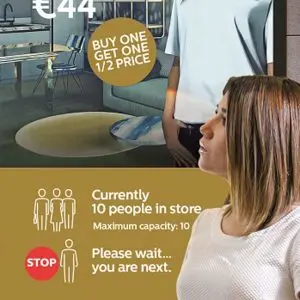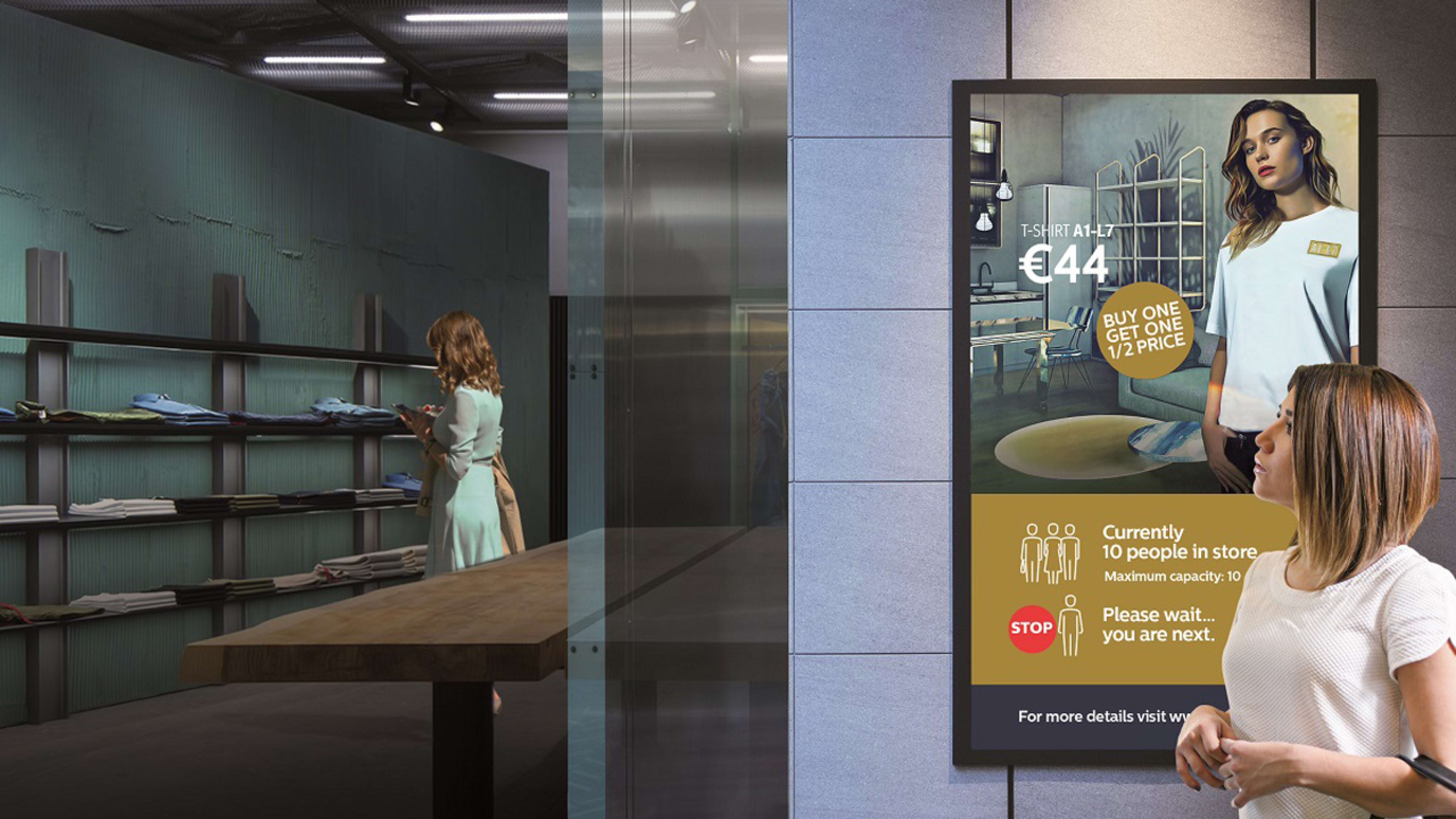Retail stores are starting to open in some states—but that doesn’t mean your shopping experience will be the same.
Philips Professional Display Solutions, a branch of the company behind everything from refrigerators to toothbrushes, has designed a line management system called PeopleCount for stores to use after reopening. If you’ve been through the checkout line at a busy Whole Foods, which uses screens to tell you what register to go to, the experience might feel familiar. But this design has another purpose: It determines who can even come in the door.
The system has a few key parts: a camera that tallies how many people enter and screens near the entrances that display real-time messaging such as capacity, number of people inside, and wait time. (The screen can also display promotional messaging—these are businesses, after all.) The displays can make audio announcements or use a traffic light-style system to communicate with customers.

Philips’s screens are just one solution to the question of how to reopen retail while keeping people safe from COVID-19. On the lo-fi end, stores are putting masking tape, paint, or colored circles on the ground to help people keep the proper distance. Stores such as Bandier are thinning out the products on display so as to create more space, while Warby Parker plans to have an employee regulate the number of customers coming through the door.
“Something as simple as visiting a supermarket or entering a leisure setting may now require a new level of thought,” Roeland Scholten, sales director at Philips Professional Display Solutions, said in a statement. “Technology can play a huge role in ensuring the current rules and guidelines are maintained and that customers and staff feel confident, safe and well informed.”
Of course, people counters aren’t new, but sharing that information publicly in order to direct consumer behavior is. Installing clear signage with real-time messaging could offer peace of mind and inspire consumer confidence that the store is following social distancing protocols. But unless these are utilizing existing cameras or counters, privacy advocates are likely to wonder if efforts to regulate social distancing will open up new opportunities for surveillance. With one camera for every 4.5 people in the U.S., should companies install more?
This article has been updated to better reflect the retailers that Philips is working with.
Recognize your brand’s excellence by applying to this year’s Brands That Matter Awards before the early-rate deadline, May 3.
